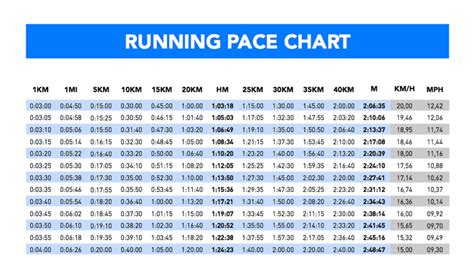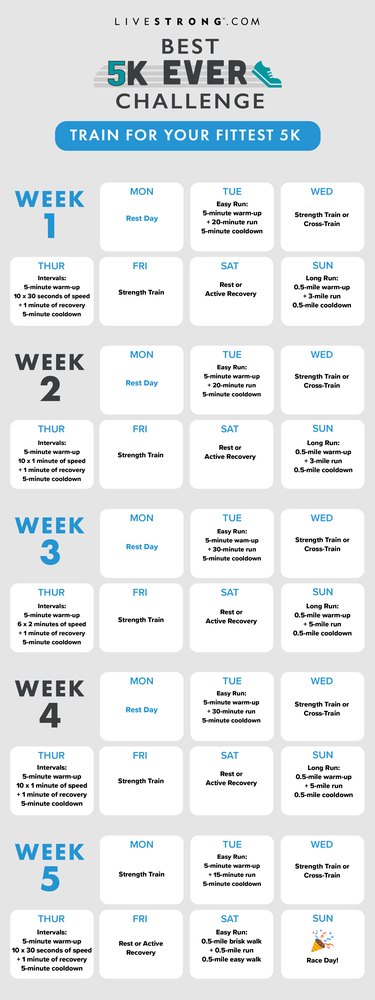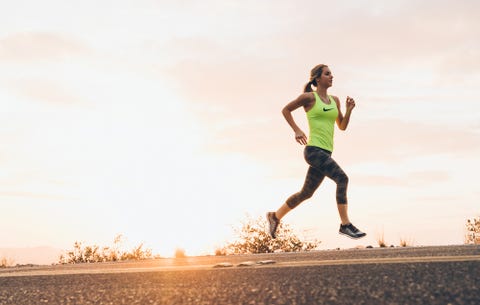The Fascination with 5K Races: Popularity and Participation
The 5K race has gained significant popularity among individuals of all ages and fitness levels, particularly women. A 5K run, equivalent to 3.1 miles, is an attainable distance for beginners and a challenging test for seasoned runners. Understanding the average 5K women’s time is essential for setting personal goals and measuring progress. This benchmark offers valuable insights into the performance of female runners, allowing them to assess their abilities and identify areas for improvement.
Decoding the Average 5K Women’s Time: A Comprehensive Breakdown
To provide a clear understanding of the average 5K women’s time, we have conducted extensive research and data analysis. The current average time for women to complete a 5K race is around 37 minutes and 39 seconds, according to a study by RunRepeat.com. However, this figure can vary based on factors such as age, fitness level, and running experience.
Age plays a significant role in determining the average 5K women’s time. Women aged 16-19 typically achieve faster times, averaging around 30 minutes and 32 seconds. As women age, their running times tend to increase, with the 40-44 age group averaging 33 minutes and 20 seconds. Women aged 65-69 have an average 5K time of 46 minutes and 10 seconds. These statistics demonstrate the natural decline in speed and endurance as individuals grow older.
Fitness level and running experience also impact the average 5K women’s time. Women who consistently train and participate in races generally have faster times than beginners or casual runners. Utilizing structured training plans, incorporating cross-training activities, and focusing on proper nutrition and recovery can significantly improve 5K running times.
How to Improve Your 5K Time: A Step-by-Step Guide for Aspiring Runners
Improving your 5K running time requires dedication, discipline, and a well-structured plan. Here are some actionable tips and strategies to help you achieve your personal best:
- Follow a structured training plan: Implement a progressive 5K training plan that gradually increases your mileage and intensity. Aim for at least three runs per week, including one long run, one interval or speed workout, and one easy run. This approach will help build your endurance, strength, and speed.
- Incorporate cross-training: Engage in activities such as swimming, cycling, or yoga to improve overall fitness and reduce the risk of injury. Cross-training can help enhance muscular strength, flexibility, and balance, all of which contribute to better running performance.
- Prioritize nutrition: Fuel your body with a balanced diet rich in carbohydrates, proteins, and healthy fats. Stay hydrated, especially during long runs and hot weather. Proper nutrition and hydration can significantly impact your energy levels and running performance.
- Focus on recovery: Allow your body adequate time to recover between workouts. Incorporate rest days, gentle stretching, and foam rolling to aid in muscle recovery and reduce soreness.
By implementing these strategies, you can improve your 5K running time and achieve your fitness goals. Remember, consistency and patience are key to long-term success.
The Role of Age in 5K Women’s Running Times: What to Expect as You Mature
As women age, their running times may naturally decline due to physiological changes. However, this does not mean that improvement is impossible. By understanding how age affects performance, you can adjust your training and expectations accordingly.
In general, women aged 16-19 tend to have the fastest 5K running times, averaging around 30 minutes and 32 seconds. As women enter their 20s and 30s, their times may remain relatively stable or experience a slight increase. However, after the age of 40, a more pronounced decline in speed and endurance becomes apparent.
For example, women in their 40s typically have an average 5K time of 33 minutes and 20 seconds, while those in their 50s average 37 minutes and 11 seconds. Women aged 60-64 have an average time of 42 minutes and 11 seconds, and those aged 65-69 average 46 minutes and 10 seconds.
Despite these statistics, it is crucial to remember that individual performance can vary widely. Factors such as genetics, lifestyle, and training history can significantly impact how age affects an individual’s running times. By focusing on maintaining a strong fitness foundation, you can help mitigate the impact of aging on your 5K running performance.
To stay motivated and maintain performance as you mature, consider setting age-specific goals, participating in masters-level races, and exploring new training methods. A supportive running community can also provide valuable encouragement and inspiration, helping you to defy the odds and continue achieving your 5K running goals.
Inspiring Women Who Defied the Odds: Breaking Average 5K Running Times
Meeting or exceeding the average 5K women’s time can be a challenging yet rewarding goal. Here, we share the inspiring stories of women who have achieved exceptional 5K running times, shattering stereotypes and motivating others to push their limits.
One such woman is Paula Radcliffe, a British long-distance runner who held the women’s marathon world record from 2003 to 2019. Although her 5K personal best of 14 minutes and 29 seconds is significantly faster than the average, her dedication and resilience serve as a testament to the power of hard work and determination. Radcliffe’s training methods, which included high mileage, interval training, and cross-training, helped her achieve remarkable success in her running career.
Another inspiring figure is Joan Benoit Samuelson, an American marathon runner and two-time Olympian. In 1983, she set the American 5K record with a time of 14 minutes and 32 seconds. Despite undergoing knee surgery just months before the 1984 Olympics, Samuelson went on to win the first-ever women’s Olympic marathon. Her mental resilience and unwavering dedication to her running goals continue to inspire women around the world.
These stories demonstrate that, with the right mindset, training, and support, women of all ages and abilities can defy the odds and achieve exceptional 5K running times. By setting challenging yet realistic goals, incorporating a variety of training methods, and embracing the power of community, you too can break through your personal barriers and redefine what is possible.
The Impact of Fitness Level on 5K Women’s Running Times: Building a Strong Foundation
A strong fitness foundation is crucial for improving 5K running times. By incorporating various forms of exercise into your training routine, you can enhance your overall fitness, increase your running efficiency, and reduce the risk of injury.
Strength training is an essential component of any well-rounded running program. Focus on exercises that target the major muscle groups used in running, such as the legs, core, and upper body. Incorporating exercises like squats, lunges, deadlifts, planks, and push-ups can help improve your running form, increase your power, and reduce muscle imbalances. Aim for two to three strength training sessions per week, allowing for adequate recovery between sessions.
Flexibility work is another vital aspect of building a strong fitness foundation. Stretching and mobility exercises can help improve your range of motion, reduce muscle stiffness, and alleviate post-run soreness. Incorporate dynamic stretches before your runs to prepare your muscles for the demands of running and static stretches after your runs to aid in recovery. Additionally, consider incorporating yoga or Pilates into your routine to further enhance your flexibility and core strength.
High-intensity interval training (HIIT) can also be beneficial for improving 5K running times. HIIT workouts involve short bursts of intense activity followed by periods of recovery. These workouts can help improve your cardiovascular fitness, increase your running speed, and boost your metabolism. Incorporate one to two HIIT sessions per week, ensuring that you allow for adequate recovery between intense workouts.
By focusing on building a strong fitness foundation through strength training, flexibility work, and HIIT, you can significantly improve your 5K running times and enhance your overall running performance. Remember to always listen to your body, prioritize recovery, and consult with a fitness professional if needed to ensure a safe and effective training plan.
The Psychology of Running: Mental Strategies for Conquering the 5K
Running a successful 5K involves more than just physical preparation. The mental aspects of running, such as goal-setting, visualization, and positive self-talk, can significantly impact your performance. By incorporating these mental strategies into your training, you can overcome anxiety, self-doubt, and other psychological barriers.
Start by setting realistic and achievable goals for your 5K running time. Use the average 5K women’s time as a benchmark, but remember that individual performance can vary based on factors such as age, fitness level, and experience. Be sure to set both short-term and long-term goals, and regularly evaluate your progress to stay motivated and focused.
Visualization is another powerful mental strategy for 5K runners. By vividly imagining yourself successfully completing a 5K race, you can build confidence, reduce anxiety, and improve your focus. Spend time each day visualizing yourself running strong, maintaining a steady pace, and crossing the finish line with a sense of accomplishment. Incorporate all of your senses into your visualization, including sights, sounds, and emotions, to create a vivid and immersive mental experience.
Positive self-talk is also essential for conquering the 5K. By replacing negative thoughts with positive affirmations, you can boost your confidence, increase your motivation, and enhance your running performance. Focus on using empowering language, such as “I can,” “I am,” and “I will,” to reinforce your abilities and commitment to your running goals.
In addition to these mental strategies, it’s essential to develop a strong support system to help you stay motivated and accountable. Join a local running group, participate in online forums, or connect with other runners on social media to share experiences, advice, and encouragement. By embracing the power of community, you can overcome the psychological barriers that often accompany 5K running and achieve your personal best.
Embracing the 5K Community: The Power of Camaraderie and Support
Running a 5K can be a challenging yet rewarding experience, and having a supportive community can make all the difference in achieving your running goals. By connecting with other runners, sharing experiences, and seeking advice, you can tap into the power of camaraderie and support to enhance your 5K running performance.
Group runs are an excellent way to build a sense of community and connect with other runners. Many local running stores, clubs, and organizations offer group runs for runners of all abilities. These runs provide an opportunity to meet new people, learn from experienced runners, and gain motivation and accountability. Additionally, group runs often include pace groups, allowing you to run with others who share your speed and goals.
Online forums and social media platforms are also valuable resources for connecting with other runners and sharing experiences. Online communities offer a wealth of knowledge and support, with runners sharing training tips, race reports, and words of encouragement. By participating in these online communities, you can connect with runners from around the world, learn from their experiences, and gain inspiration and motivation for your own running journey.
In addition to connecting with other runners, it’s essential to seek out advice and support from experienced coaches and trainers. A qualified running coach can provide personalized training plans, cross-training recommendations, and nutrition and recovery strategies tailored to your individual needs and goals. By working with a coach, you can gain the knowledge and support needed to improve your 5K running times and achieve your personal best.
Ultimately, embracing the 5K community can help you overcome the challenges of running a 5K and enhance your overall running experience. By connecting with other runners, seeking advice and support, and participating in group runs and online communities, you can tap into the power of camaraderie and support to achieve your running goals and enjoy the journey along the way.






